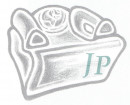Due to the nature of Internet publishing, content found on Web sites can be updated, corrections and improvements being inserted whenever an author desires. Sometimes, an article’s revision involves no more than a word or two. An online article might be revised, for example, twenty times in one day. Consequently, online articles are usually accompanied by a “Last Revised” date and the “Date Read” (i.e., date of access).
It has become clear that in the not-to-distant future the majority of scholarly publications (books and articles) will be published electronically. Consequently, standards for citation of Internet publications have already been set in place. See, for example: The SBL Handbook of Style: For Ancient Near Eastern, Biblical and Early Christian Studies (ed. Patrick H. Alexander; Peabody, MA: Hendrickson, 1999), 63.
Probably, the authority for online citation is Janice R. Walker and Todd Taylor, The Columbia Guide to Online Style (New York: Columbia University Press, 2006). Walker and Taylor suggest:
To cite an individual Web page, give the author’s name, the title of the page, enclosed in quotation marks, capitalizing the first word and all major words, followed by the date of publication and/or last modification, the complete URL, including the protocol (e.g., “http”), and the date of access enclosed in parentheses and followed by a period. If the page is part of a larger Web site, include the site title in italics.
Here are examples of how JP content should be cited:
1. Online articles
As footnote: Shmuel Safrai, “A Priest of the Division of Abijah,” 7 October 2005, Jerusalem Perspective Online, http://www.jerusalemperspective.com/2304 (13 November 2012).
As entry in a bibliography: Safrai, Shmuel. “A Priest of the Division of Abijah.” 7 October 2005. Jerusalem Perspective Online. http://www.jerusalemperspective.com/2304 (13 November 2012).
2. eBooks
Sermons from Narkis, ed. Joseph Frankovic, 31 March 2006, Jerusalem Perspective Online, (Download page): http://www.jerusalemperspective.com/products-page/ebooks/sermons-from-narkis/, 14.
3. Weblogs
Brian Becker, “Engaged: The Family Blessing,” 13 August 2012, Jerusalem Perspective Weblog, http://www.jerusalemperspective.com/9525 (13 August 2012).






























































































